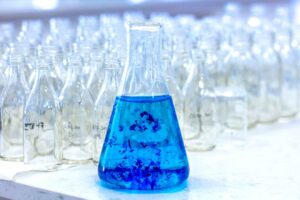Collagen supports joint health, promotes youthful skin, and even improves gut health. By adding collagen to your daily routine, you can support your body from the inside out and enjoy a whole host of benefits.
As someone who is conscious of the importance of collagen in maintaining a healthy lifestyle, I have experimented with various types of collagen and found that incorporating fish, bone broth (beef and chicken bones), and other sources into my daily routine has led to noticeable improvements. For example, when I play golf and consume collagen regularly, I experience less muscle and joint aches, particularly in my knees.
In this article, we’ll discuss a few natural methods to stimulate collagen production and improve skin health.
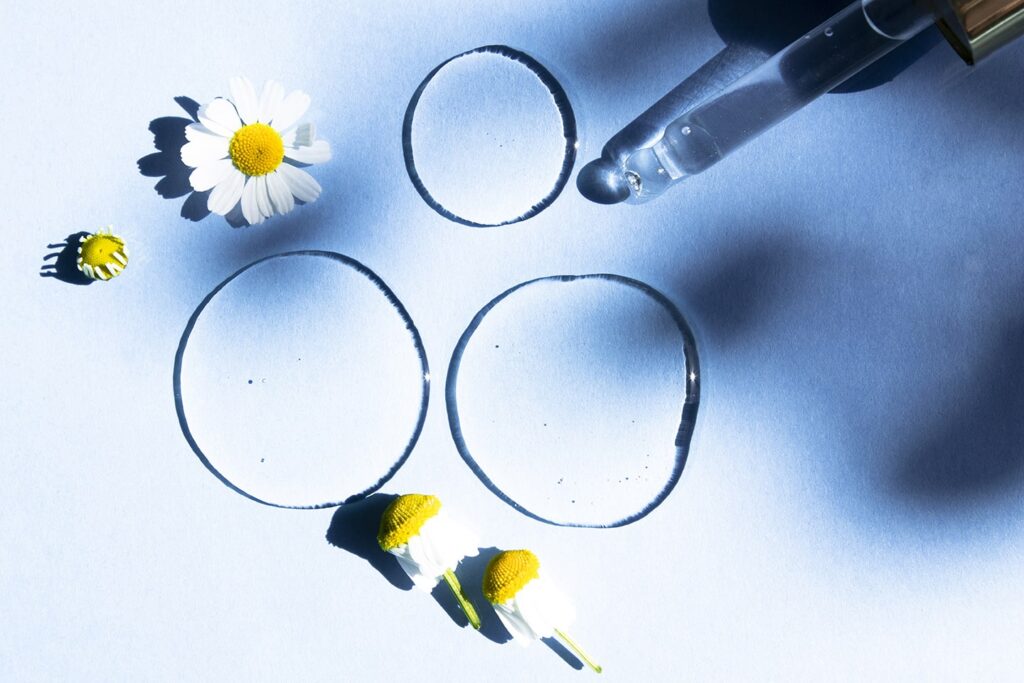
The Role of Collagen in Skin Health
As we age, our natural collagen production slows down, leading to the development of fine lines, wrinkles, and sagging skin. By supplementing with collagen or using collagen-rich skincare products, we can help support the skin’s natural repair and renewal processes to achieve a smoother, more youthful complexion that glows from the inside out.
Understanding Collagen Structures
Collagen is a fibrous protein that is the most abundant protein in the human body[1]. It is found in tissues such as skin, muscles, bones, tendons, ligaments, and cartilage[2][3]. Collagen provides mechanical support to tissues and helps make them strong and resilient[3][4].

The Importance of Skin's Elasticity
Skin elasticity is important because it allows the skin to stretch and then return to its original shape and position. Elasticity is what allows the skin to move and flex without tearing or becoming damaged. As we age, our skin loses elasticity, which can lead to wrinkles, sagging, and other signs of aging[5].
Maintaining skin elasticity is vital for a youthful appearance and skin tone! When collagen production decreases, the skin’s elasticity diminishes, this is when we start showing signs of aging.
The Synergy Between Collagen and Elastin
Collagen and elastin are two different types of proteins that work together to provide strength, structure, and elasticity to biological structures[6].
Human skin fibroblasts, or fibroblast cells, are vital for collagen biosynthesis. These cells are involved in the production of collagen and elastin, making them essential for maintaining skin structure and elasticity. By targeting human skin fibroblasts and human dermal fibroblasts, we can stimulate collagen production and promote healthier skin.

Natural Ways to Boost Collagen Production
Consuming a Balanced Diet
A balanced diet rich in lean protein, amino acids, and vitamin C can promote collagen production. Citrus fruits, leafy greens, and lean meats provide the essential nutrients needed for collagen synthesis. Ingesting collagen peptides or hydrolyzed collagen from supplements can also support collagen production. See my articles about polyphenol-rich foods, as well as the benefits of introducing high vibration foods into your diet.
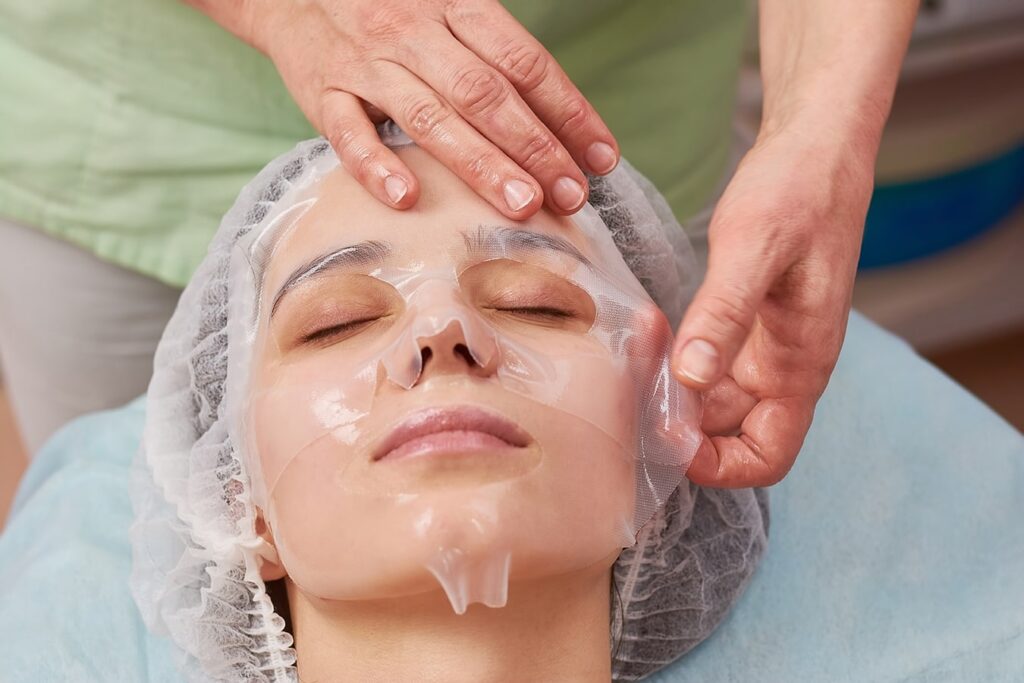
Using Topical Treatments
Applying topical vitamin C and hyaluronic acid can boost collagen production as these ingredients promote collagen growth and improve skin’s elasticity. Aloe vera gel, rich in vitamins and enzymes, supports wound healing and collagen synthesis, also leading to healthier skin.
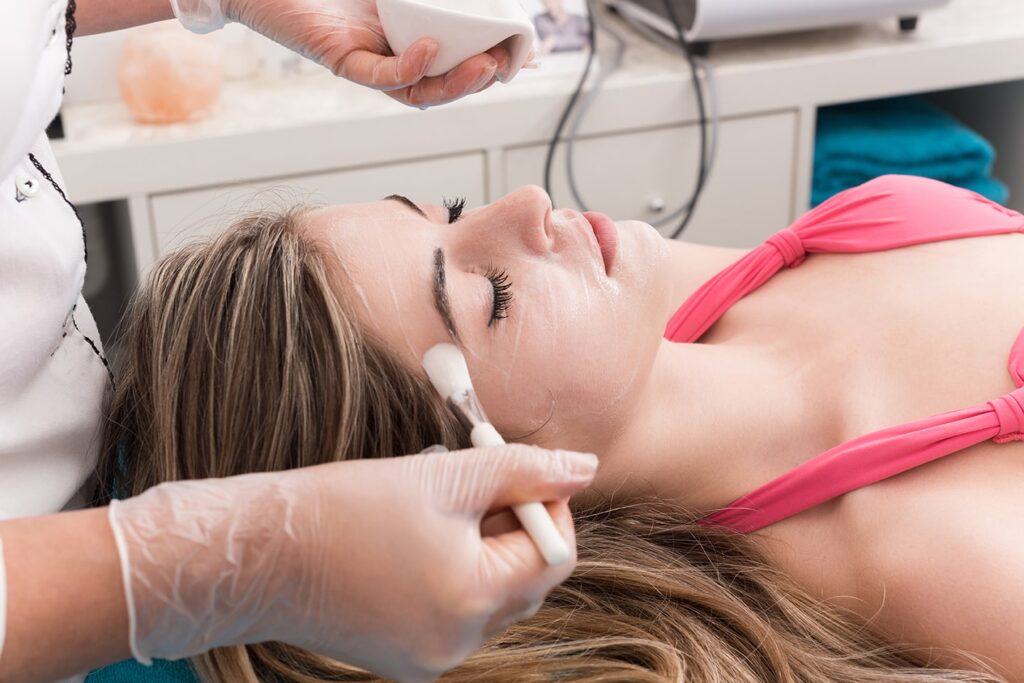
Getting Enough Beauty Sleep
When you sleep, the body repairs and regenerates skin cells, leading to increased collagen production. Prioritizing a consistent sleep schedule supports both skin health and collagen growth. Learn more about my daily routine, from sunrise to sunset, here.

Protecting Skin from Sun Exposure
Sun exposure and UV rays can break down collagen structures and damage skin cells, leading to premature skin aging. Wear sunscreen, protective clothing, and avoiding excessive sun exposure to protect your collagen layer.

The Role of Collagen Supplements
Ingestible collagen, available in various forms such as powders and capsules, can be easily incorporated into one’s daily routine. Health food stores offer a wide range of ingestible collagen products to naturally support and increase collagen levels in your body. Regular collagen supplementation can lead to smoother skin, improved skin structure, and enhanced skin protection.
Different Types of Collagen Supplements
There are various types of collagen supplements available, including fish, bone broth (beef and chicken bones), and plant sterols derived options.

Collagen Supplements and Their Benefits
Collagen supplements, such as collagen peptides and hydrolyzed collagen, can be easily incorporated into one’s daily routine. These supplements can be added to water, smoothies, or even consumed as capsules.
Vegetarian Collagen Options
Unfortunately, I do not have any personal tips for vegetarian collagen options. However, there are plant-based alternatives like aloe vera and panax ginseng that can support skin health and promote collagen production. Additionally, consuming a diet rich in vitamin C, amino acids, and other essential nutrients can help support collagen production in individuals following a vegetarian or vegan lifestyle.

Lifestyle Changes to Support Collagen Production
In addition to dietary modifications and skincare practices, adopting a healthy lifestyle can enhance the body’s ability to produce collagen. Regular exercise, proper hydration, stress management, and adequate sleep can all contribute to increased collagen levels.
Regular Exercise
Engaging in regular exercise promotes blood circulation, which in turn supports the production of collagen. Improved blood flow delivers essential nutrients to the skin cells and helps remove waste products, promoting a healthier skin environment and stimulating collagen synthesis.
Hydration
Proper hydration is crucial for skin health and collagen production. Drinking enough water throughout the day helps maintain skin elasticity, supports collagen structures, and keeps skin cells functioning optimally. Dehydration can lead to dry skin, which may exacerbate the appearance of fine lines and wrinkles.
Managing Stress
Implementing stress management techniques, such as meditation, yoga, or journaling, can help reduce stress levels and support collagen synthesis, leading to a healthier complexion.
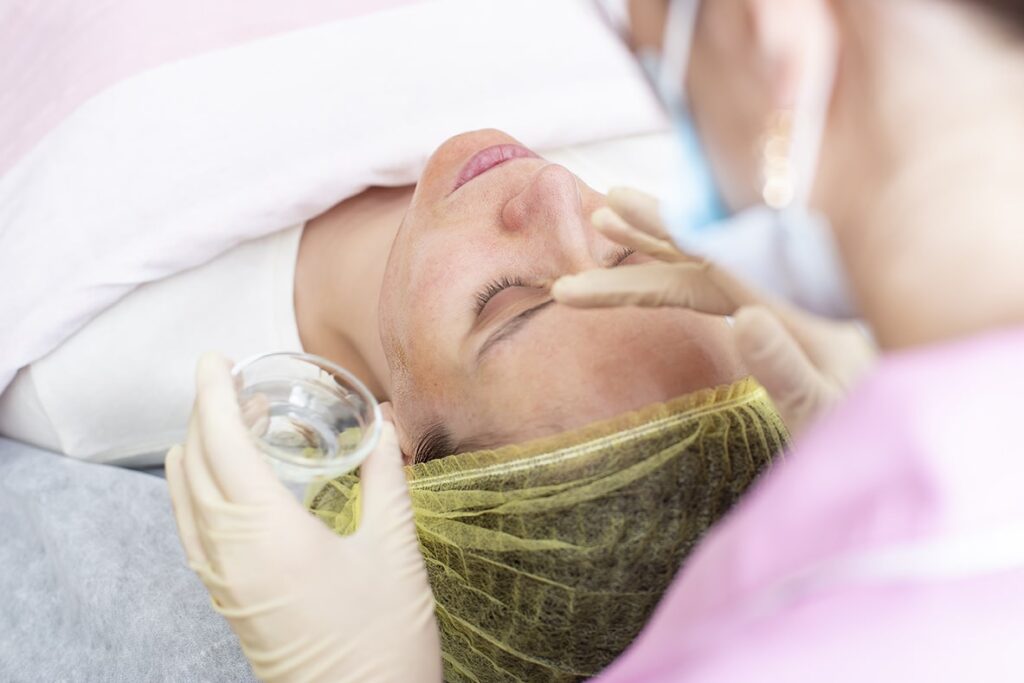
Professional Treatments for Collagen Stimulation
Red Light Therapy
Red light therapy (RLT) is a treatment that uses low wavelength red light to reportedly improve the skin’s appearance, such as reducing wrinkles, scars, redness and acne[7].
Red light therapy is a professional treatment, a popular biohack, that has been shown to stimulate collagen production in the skin. The treatment uses specific wavelengths of red light to penetrate the skin’s upper layers and promote cell growth, resulting in new collagen production and improved skin quality. I personally love my at home red device and use it 1-2 times a week. See more about red light therapy and my experience with it here.
Microneedling
Microneedling is a minimally invasive procedure that uses tiny needles to create micro-injuries in the skin, prompting the body’s natural wound healing process. This treatment stimulates collagen production and can improve the appearance of fine lines, wrinkles, and other signs of aging.
Chemical Peels
Chemical peels involve the application of a chemical solution to the skin, causing it to exfoliate and eventually peel off. This process promotes the growth of new skin cells and stimulates collagen production, leading to a smoother, more youthful complexion.
Dermal Fillers
Dermal fillers, such as hyaluronic acid treatment, can temporarily restore lost volume and stimulate collagen growth. These treatments work by injecting a gel-like substance into the skin, providing support to the skin’s structure.

Coaching Sessions
I am currently offering one-on-one coaching sessions to help individuals who may be facing challenges in achieving their goals independently. My goal as a coach is to guide and support you in every step of your journey, while also holding you accountable for the actions you take towards achieving your desired outcomes.
Whether you want to improve your health and wellness, establish better habits, or achieve personal and professional growth, I can provide you with personalized attention, a customized approach that suits your unique needs, and the necessary tools and motivation to help you reach your full potential and transform your life.
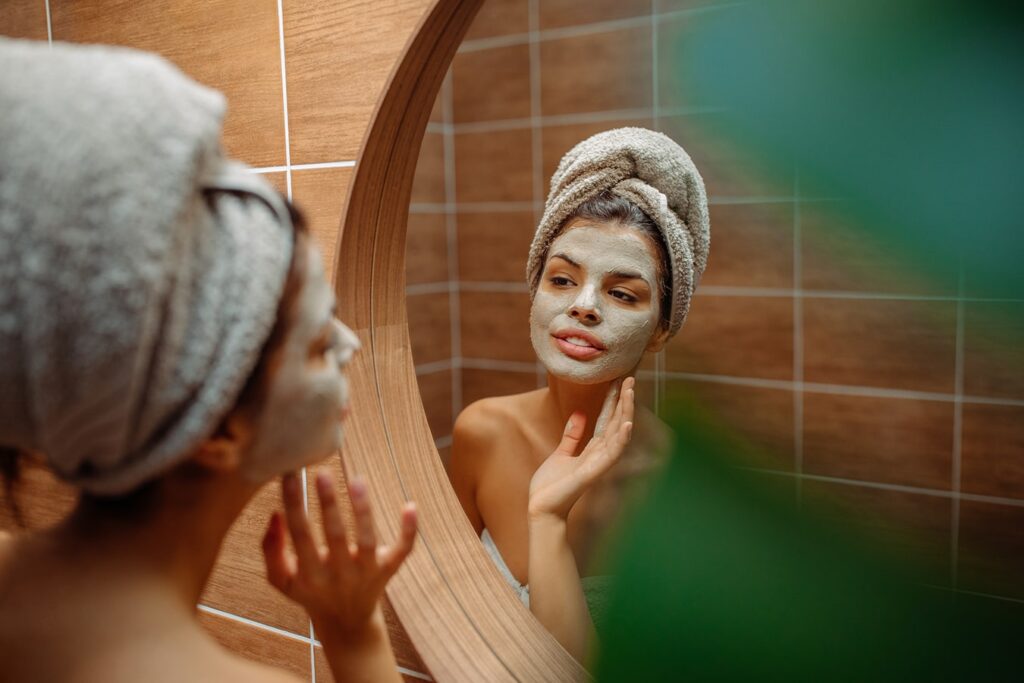
Conclusion
In conclusion, understanding the crucial role that collagen plays in skin health and implementing a multi-faceted approach to boosting collagen levels can lead to significant improvements in skin condition and appearance. By incorporating a balanced diet, protecting your skin from environmental factors and exploring professional treatments you can restore collagen levels, maintain healthy skin structure, and enjoy a youthful, glowing complexion.
FAQ
Collagen is the most abundant protein in the human body and plays a crucial role in maintaining skin structure and elasticity. It helps reduce the appearance of fine lines and wrinkles, and its production decreases as we age, leading to sagging and aged-looking skin.
You can stimulate collagen production through a balanced diet, topical treatments, regular exercise, proper hydration, stress management, and adequate sleep. Consuming a diet rich in lean proteins, amino acids, and vitamin C can support collagen synthesis, while applying topical vitamin C and hyaluronic acid can promote collagen growth.
Collagen supplements, such as collagen peptides and hydrolyzed collagen, can help increase collagen levels, improve skin elasticity, and support skin health. They can be easily incorporated into one's daily routine by adding them to water, smoothies, or consuming them as capsules.
Professional treatments such as red light therapy, microneedling, chemical peels, and dermal fillers can stimulate collagen production and improve skin health. These treatments work by promoting cell growth, exfoliating the skin, or injecting gel-like substances to support the skin's structure and encourage collagen production.
Collagen and elastin are two essential proteins that work together to maintain skin structure and elasticity. Collagen provides strength and support, while elastin is responsible for the skin's ability to stretch and return to its original shape. Boosting collagen levels and preserving elastin can lead to healthier and more youthful-looking skin.
Human skin fibroblasts, or fibroblast cells, are vital for collagen biosynthesis. These cells are involved in the production of collagen and elastin, making them essential for maintaining skin structure and elasticity. Targeting these cells can stimulate collagen production and promote healthier skin.
UV exposure from the sun can damage collagen structures, leading to decreased skin elasticity and an increased risk of developing fine lines and wrinkles. Protecting the skin from harmful UV rays by wearing sunscreen, seeking shade, and avoiding excessive sun exposure is essential for maintaining healthy collagen levels.
Proper hydration is crucial for skin health and collagen production. Drinking enough water throughout the day helps maintain skin elasticity, supports collagen structures, and keeps skin cells functioning optimally. Dehydration can lead to dry skin, which may exacerbate the appearance of fine lines and wrinkles.
Regular exercise promotes blood circulation, which in turn supports the production of collagen. Improved blood flow delivers essential nutrients to the skin cells and helps remove waste products, promoting a healthier skin environment and stimulating collagen synthesis.
Red light therapy is a professional treatment that stimulates collagen production in the skin. It uses specific wavelengths of red light to penetrate the skin's upper layers and promote cell growth, resulting in new collagen production and improved skin quality.
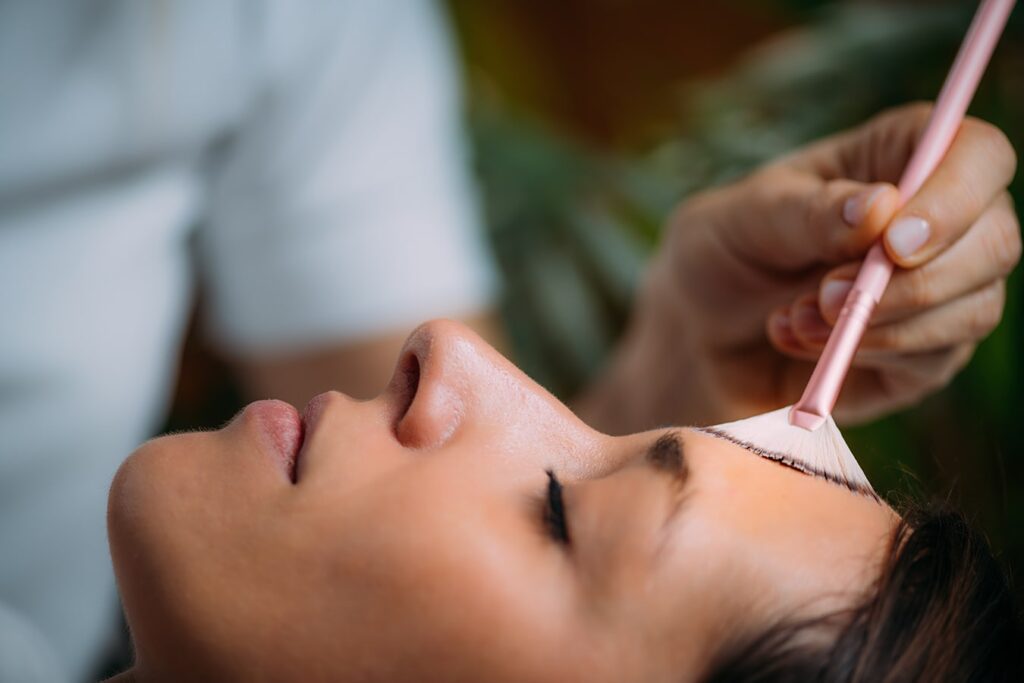
Resources
1. Collagen: What it is, Types, Function & Benefits
2. Structure of Collagen – PubMed
3. Collagen | The Nutrition Source | Harvard T.H. Chan School of …
4. Biochemistry, Collagen Synthesis – StatPearls – NCBI Bookshelf
5. Saggy Skin: Why You Have It and What to Do About It – Healthline

With a positive approach and a motivation mindset, you will reach your health goals, no matter how hard they may seem at first. Learn more about my one-on-one coaching program here.




